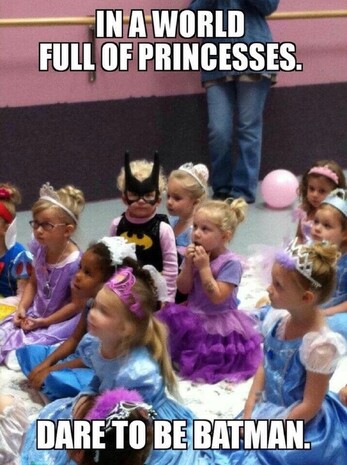As the world reattaches its eyebrows from the back of its head and tries to readjust to the reality that Donald Trump did in fact win the US presidency, it seems to us at The Clarity Business – people who are more into the power of message than politics - that there are a number of very sound reasons why he came through to win it:
Luke Henshall: Know your audience
Fundamental to the success, in my mind, is that they knew their audience and there's a lot to learn from that.
Face to face contact is still key
Despite the rapid uptake in digital and social media in recent years, there's still no better way to get to know who your audience is than getting out and "pressing the flesh". This is really politics / PR 101. However, the campaign team took this to the next level, seen in the passion stirred at their rallies where Trump supporters were given a common purpose and their social views normalised. And when Hillary Clinton labelled these supporters as "deplorables", the job was done as it became the ultimate rallying cry to mobilise.
Understand audience issues and align your message to suit
Trump's campaign team picked up on the issues faced by the blue-collar section of the population, the deep-seated frustration, fear and distrust - and adopted narrative to suit, much better than their Democratic rivals. With Bernie Sanders gone from the race, Trump was the perfect candidate to become the change agent. This opportunity was not lost. Trump was soon cast as the American Dream revived, a pariah of capitalism who provided hope in the form of jobs, someone who was going to put American priorities first, and importantly, someone (believe it or not) they could relate to.
Retain focus at all costs
When you're in the midst of a drive to win support from a particular audience always remember they're the ones you're having the dialogue with and be strong in the face of dissent. For the Trump campaign, it was always going to be a battle, given the extreme policies and rhetoric being expressed. While the mainstream media and comedians were having a field day, not to mention the countless polls running against them, the campaign team maintained confidence in their support base and it paid off on election day.
George Hulbert: Simplicity of message
When you're trying to make a point that truly resonates with your audience, make it as simply as you can.
Trump's campaign showed true mastery of message. Think about it: how many long words or complicated concepts did he use?
What was his campaign all about? "Make America Great Again"
What was his policy on the economy? "Jobs, jobs, jobs"
Who was his opponent? "Crooked Hilary"
And even when he was being criticised for not paying his taxes (how on earth did this one not stick?): "I'm smart"
Immigration? "We're gonna build a wall"
Whether you like these statements or not, or whether any policies actually surfaced during the campaign to substantiate these positions (I can't recall them), few words longer than two syllables got in to the mix. Easy to remember, easy to understand, easy to recall – easy to support.
And, as for 'Make America Great Again' its simplicity and power punched through hard into the minds of the electorate. Telling people in four words that they are not great right now, that they can be again and that to do it they have to 'make' it happen didn't just build a 'yes we can' type of hope - it showed people how they could achieve it. Powerful stuff, as shown in the words of an attendee at the Republican National Convention. "Those are words to live by. This is not the country I grew up in, and Donald Trump will do something about it.''
Brooke Hurndell: The power of the press is very much alive
The influence of mainstream media
It's hard to ignore the reverberating resonance of mainstream media despite the empowering impacts of social media on the 'unheard' citizens. In attempts to ridicule and falsify Trump's idealisms and promises, the media essentially did exactly the opposite of what they set out to do. He was after an 'us vs them' reaction and he absolutely got it. Instead of denigrating Trump's reputation, they amplified his messages delivering them to the masses of the USA. What they didn't predict was that the majority of America bought into the same Trump ideals that many thought would earmark Clinton as the sure fire winner.
Perception and reputation is everything
While objectivity is favoured in most places (at least in New Zealand anyway) in relation to principles of journalism, a one-sided account of Clinton's perceived popularity was plastered all over the news. Some would speculate and say that it is this blanket effect of the false sense of security that resulted in a widespread mentality that "Clinton had it in the bag". This hits home the fact that public perception should always be at the forefront when establishing a strategic approach to messaging.
Who will deliver your messages?
From a PR perspective, what we can take from this is that you should never underestimate the power of the media when delivering key messages. The coverage of the US election quietly suggests that mainstream media still plays a significant role in the formations of public opinion. Pinpointing the outlets and influencers that will be a vehicle for your narratives is key to reaching your desired audiences. Of course many will question the ethical standards underpinning Trump's messaging (and rightfully so) but one thing is for certain, he capitalised on the media's ever-present ability to disseminate his key messages.
Luke Henshall: Know your audience
Fundamental to the success, in my mind, is that they knew their audience and there's a lot to learn from that.
Face to face contact is still key
Despite the rapid uptake in digital and social media in recent years, there's still no better way to get to know who your audience is than getting out and "pressing the flesh". This is really politics / PR 101. However, the campaign team took this to the next level, seen in the passion stirred at their rallies where Trump supporters were given a common purpose and their social views normalised. And when Hillary Clinton labelled these supporters as "deplorables", the job was done as it became the ultimate rallying cry to mobilise.
Understand audience issues and align your message to suit
Trump's campaign team picked up on the issues faced by the blue-collar section of the population, the deep-seated frustration, fear and distrust - and adopted narrative to suit, much better than their Democratic rivals. With Bernie Sanders gone from the race, Trump was the perfect candidate to become the change agent. This opportunity was not lost. Trump was soon cast as the American Dream revived, a pariah of capitalism who provided hope in the form of jobs, someone who was going to put American priorities first, and importantly, someone (believe it or not) they could relate to.
Retain focus at all costs
When you're in the midst of a drive to win support from a particular audience always remember they're the ones you're having the dialogue with and be strong in the face of dissent. For the Trump campaign, it was always going to be a battle, given the extreme policies and rhetoric being expressed. While the mainstream media and comedians were having a field day, not to mention the countless polls running against them, the campaign team maintained confidence in their support base and it paid off on election day.
George Hulbert: Simplicity of message
When you're trying to make a point that truly resonates with your audience, make it as simply as you can.
Trump's campaign showed true mastery of message. Think about it: how many long words or complicated concepts did he use?
What was his campaign all about? "Make America Great Again"
What was his policy on the economy? "Jobs, jobs, jobs"
Who was his opponent? "Crooked Hilary"
And even when he was being criticised for not paying his taxes (how on earth did this one not stick?): "I'm smart"
Immigration? "We're gonna build a wall"
Whether you like these statements or not, or whether any policies actually surfaced during the campaign to substantiate these positions (I can't recall them), few words longer than two syllables got in to the mix. Easy to remember, easy to understand, easy to recall – easy to support.
And, as for 'Make America Great Again' its simplicity and power punched through hard into the minds of the electorate. Telling people in four words that they are not great right now, that they can be again and that to do it they have to 'make' it happen didn't just build a 'yes we can' type of hope - it showed people how they could achieve it. Powerful stuff, as shown in the words of an attendee at the Republican National Convention. "Those are words to live by. This is not the country I grew up in, and Donald Trump will do something about it.''
Brooke Hurndell: The power of the press is very much alive
The influence of mainstream media
It's hard to ignore the reverberating resonance of mainstream media despite the empowering impacts of social media on the 'unheard' citizens. In attempts to ridicule and falsify Trump's idealisms and promises, the media essentially did exactly the opposite of what they set out to do. He was after an 'us vs them' reaction and he absolutely got it. Instead of denigrating Trump's reputation, they amplified his messages delivering them to the masses of the USA. What they didn't predict was that the majority of America bought into the same Trump ideals that many thought would earmark Clinton as the sure fire winner.
Perception and reputation is everything
While objectivity is favoured in most places (at least in New Zealand anyway) in relation to principles of journalism, a one-sided account of Clinton's perceived popularity was plastered all over the news. Some would speculate and say that it is this blanket effect of the false sense of security that resulted in a widespread mentality that "Clinton had it in the bag". This hits home the fact that public perception should always be at the forefront when establishing a strategic approach to messaging.
Who will deliver your messages?
From a PR perspective, what we can take from this is that you should never underestimate the power of the media when delivering key messages. The coverage of the US election quietly suggests that mainstream media still plays a significant role in the formations of public opinion. Pinpointing the outlets and influencers that will be a vehicle for your narratives is key to reaching your desired audiences. Of course many will question the ethical standards underpinning Trump's messaging (and rightfully so) but one thing is for certain, he capitalised on the media's ever-present ability to disseminate his key messages.
Daniel McCabe: Be authentic
 Love him or loathe him, Donald Trump speaks his mind. He never pulls his punches, he says what he thinks regardless of who he offends and makes no apologies for it. In a world that has become so sensitive and easily offended, Trump stood by his comments and refused to bow to media pressure to apologise for his innumerable offensive remarks.
Love him or loathe him, Donald Trump speaks his mind. He never pulls his punches, he says what he thinks regardless of who he offends and makes no apologies for it. In a world that has become so sensitive and easily offended, Trump stood by his comments and refused to bow to media pressure to apologise for his innumerable offensive remarks.
When he was questioned about his comments that Mexican migrants to the U.S. are drug traffickers and rapists, how did he respond? "Somebody's doing the raping."
In the first Republican presidential primary debate when the moderator asked him about his use of language like "fat pigs," "dogs," "slobs" and "disgusting animals" to describe some women, Trump chimed in with: "Only Rosie O'Donnell".
 Love him or loathe him, Donald Trump speaks his mind. He never pulls his punches, he says what he thinks regardless of who he offends and makes no apologies for it. In a world that has become so sensitive and easily offended, Trump stood by his comments and refused to bow to media pressure to apologise for his innumerable offensive remarks.
Love him or loathe him, Donald Trump speaks his mind. He never pulls his punches, he says what he thinks regardless of who he offends and makes no apologies for it. In a world that has become so sensitive and easily offended, Trump stood by his comments and refused to bow to media pressure to apologise for his innumerable offensive remarks. When he was questioned about his comments that Mexican migrants to the U.S. are drug traffickers and rapists, how did he respond? "Somebody's doing the raping."
In the first Republican presidential primary debate when the moderator asked him about his use of language like "fat pigs," "dogs," "slobs" and "disgusting animals" to describe some women, Trump chimed in with: "Only Rosie O'Donnell".
As repulsive as his views and comments may be, you always knew what you were getting with The Donald, unlike 'crooked Hillary'. She would say and do anything if she thought it would get her more votes. After originally supporting the Trans-Pacific Partnership she flip-flopped and opposed it when popular opinion changed. When people started to 'feel the Bern' all of a sudden free education was important to her. Something that didn't escape Bernie Sanders' attention: "In fact, I think I saw a TV ad and thought it was me. But it turned out it was Secretary Clinton's picture in the end".
While Hillary tried to be everything to everyone, Donald said what was on his mind – and in doing so struck a chord with people disillusioned with the political process. If nothing else, he was real. To build people's trust you need to be perceived as being authentic. Hillary wasn't. President-elect Trump was.
While Hillary tried to be everything to everyone, Donald said what was on his mind – and in doing so struck a chord with people disillusioned with the political process. If nothing else, he was real. To build people's trust you need to be perceived as being authentic. Hillary wasn't. President-elect Trump was.


